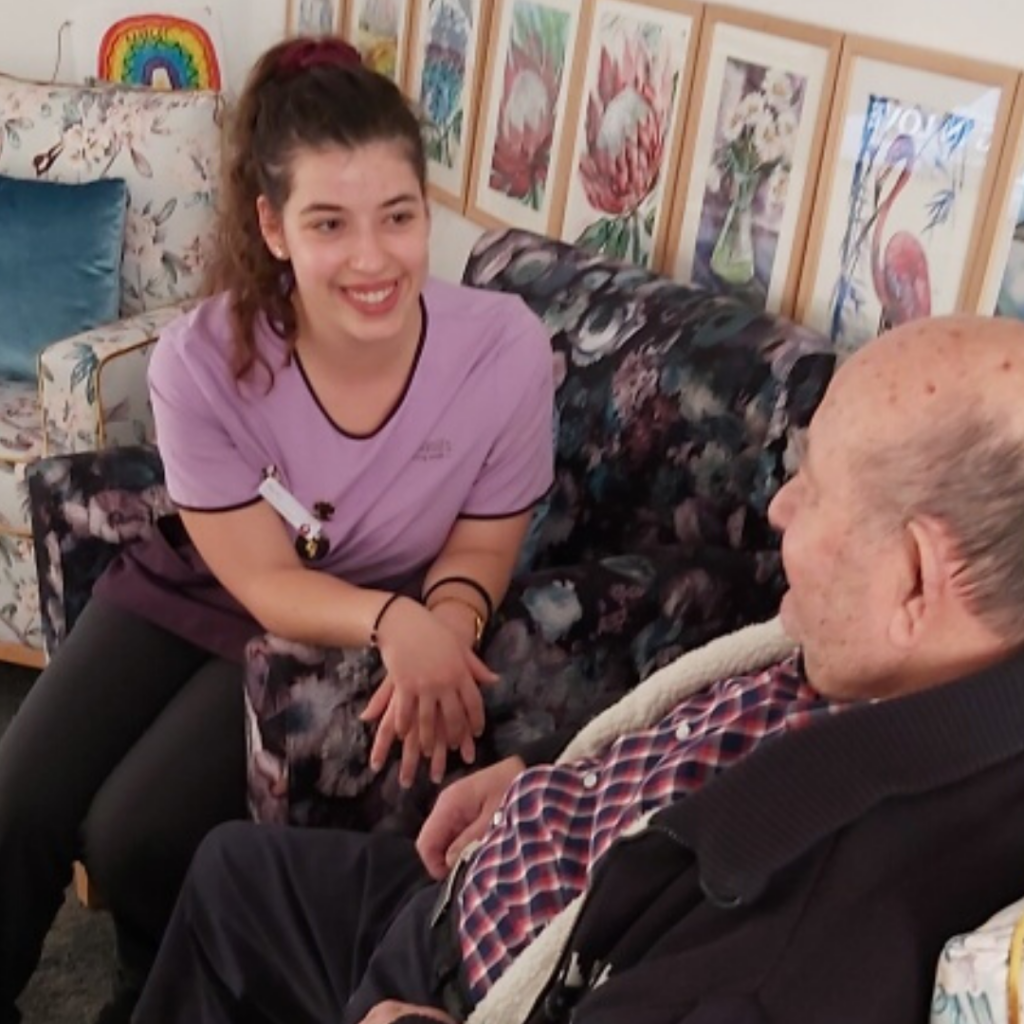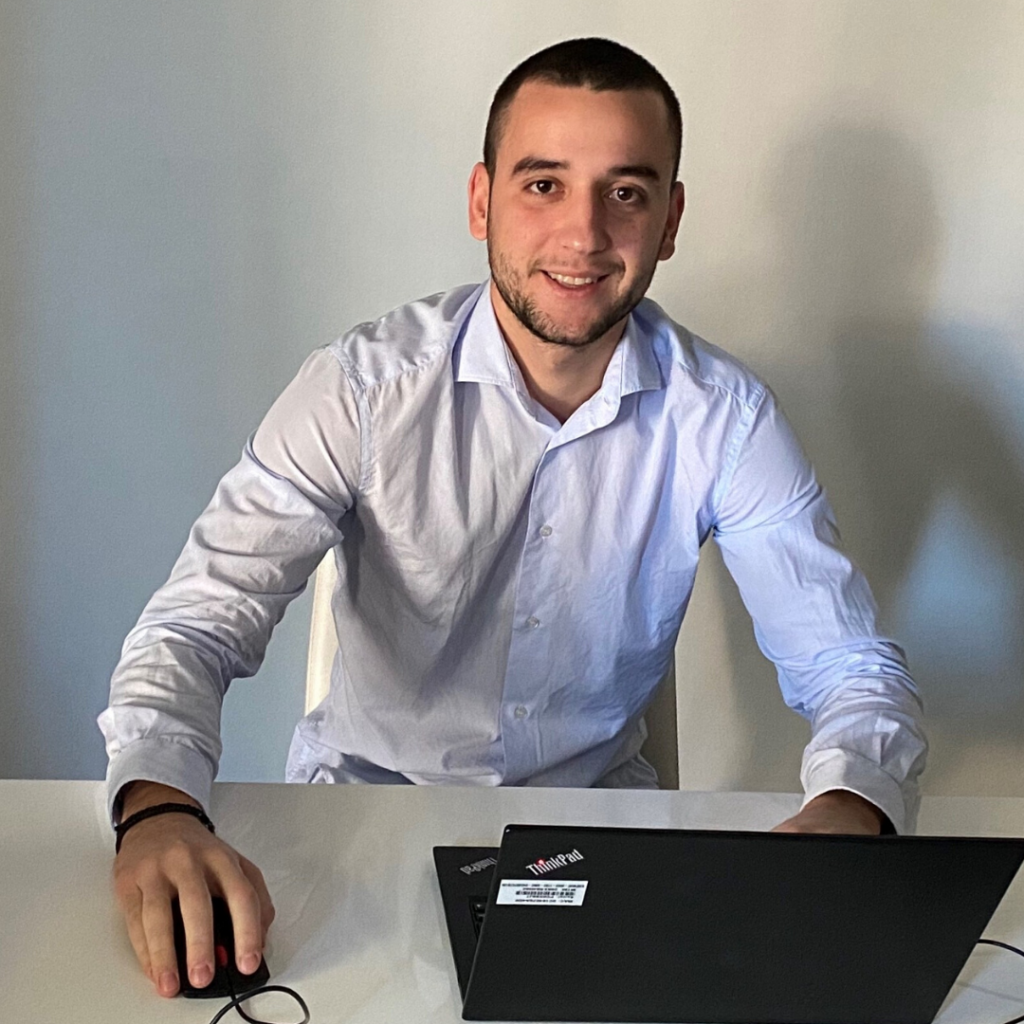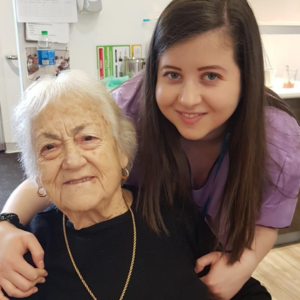Internships in the time of coronavirus
June 5, 2020
Working in Australia during the COVID-19 crisis has been an extraordinary experience for the five interns from Greece who are currently undertaking six-month placements through The Hellenic Initiative Australia’s Internship Program.
Three aged care interns are working at St Basil’s Homes in Adelaide under strict lockdown and two finance graduates based at ANZ headquarters in Melbourne have been working from home.
With lockdowns and social distancing measures, the interns have had to adapt to major changes in their workplaces and the way they work, including social isolation and working from home.
Despite the challenges, they say many positives have emerged from their internship experience in Australia during COVID-19.
Sokratis Ntounis was fortunate to have completed the ANZ graduate induction program in February and join the Resource, Energy and Infrastructure division as a graduate credit analyst before the isolation measures were put into place. While he has been working from home since April, he is keeping busy and constantly learning and says that it has been a unique opportunity to see how the banks, industry and the economy respond in a crisis.
“COVID-19 has added an element of interest and I think it’s actually been a more worthwhile and enriching experience being a graduate at a banks at a time like this,” Sokratis says. “It’s a really interesting opportunity to see how the banks react, how the managers and staff respond, how the whole economy reacts and see the interaction between all those players.”
The drawbacks, Sokratis says, have been the lack of personal interaction with his team and less opportunities to connect and learn from people in other teams, which happens in a normal office environment.
“The ANZ team has been incredibly helpful and supportive. My line manager is always checking in with me to ensure I am okay and staying involved with the team and also checking whether I have enough to do but I am looking forward to returning to the office,” he says.
At St Basil’s Homes in Adelaide, the three THI aged care interns have received in-house training in virus protection measures and undertaken online training courses for health workers mandated by the Australian Government.
Since the facilities went into lockdown, they have been offered extra support such as taxis to and from work and have become an integral part of the team taking care of residents through this difficult time.
“Working at a nursing home during this pandemic has been challenging for staff and residents,” says intern Myrto Santorinaiou.
“But everyone at St Basil’s has been really supportive and I have learned so much about virus control from working under lockdown conditions.
“I’ve also learnt to appreciate the importance of the simple things we take for granted, like going out with your friends and, above all, our health,” she says.

Q & A: Myrto Santorinaiou
Aged care intern, St Basil’s Homes SA
How long had you been working at St Basil’s when the coronavirus crisis emerged?
I had been in Adelaide working at St Basil’s for approximately two months when the COVID-19 crisis emerged. We went into lockdown around the end of March.
What did it mean for your workplace?
It has been very interesting to see the immediate changes that were made. During lockdown, only the essential employees are allowed in the building. This meant that the families could no longer visit their loved ones face-to-face, only with a glass door in between, with the exception of residents on palliative care.
Hairdressers, volunteers and other personnel that are not considered essential cannot come inside. Common areas such as the living room and dining room were altered so there would be distance between the residents at all times. Some of the activities, like bingo or exercising together, were also stopped because of social distancing.
How has it been working in lockdown mode?
Working during lockdown mode has been challenging. Many changes have occurred for the residents’ everyday life and it has been stressful for the staff as well, as it is unknown territory for everybody. As staff, we are required to expose ourselves the minimum possible, so we’re not using public transport. We have our temperature taken before coming in and we sign a form that we have no symptoms.
How have you coped with being in isolation?
It has been strange for me but having moved here just a couple of months ago has being helpful. I still have the feeling of exploring the city walking around the beautiful parks and discovering local cafes (that do take away, of course). Before coming here, I wanted to get back to reading books and isolation has been a great opportunity for me to clear my to-read list. I’m also practicing my skills exercising using any equipment I can find in the apartment. I feel lucky that I can still go to work and be busy doing what I love.
How have the residents coped? Has it made your job harder?
The isolation has been hard for the residents. Everyone is coping differently. Some of them understand the situation and are not affected, as they are able to communicate through skype calls and visits by the glass door. Some miss the hairdresser the most! Others, especially those with dementia, have been more challenged. It has been especially hard for the residents who needed to go to the hospital during the lockdown and afterwards had to stay isolated for 14 days in their rooms, for prevention reasons. You can see how much the self-isolation has affected their psychology and wellbeing but we try to help and comfort them as much as we can.
How hard has it been being away from your families?
At first it was really hard. As a nurse, it comes natural to me to worry and prepare for the worst so in the beginning, I was constantly worried that my family was not taking this crisis seriously enough. Having a sister in Spain and another in Romania was not helpful either, as I had more reasons to stress. Seeing how well Greece is handling the situation has been a huge relief for me. Also, if I were in Greece right now working in a hospital I would be a risk to my family. As much as I miss them, I think it is actually for the best that I am not in Greece right now.
You initially wondered if you should go home. Are you glad you stayed?
Before joining this program, I wanted to put myself in a situation out of my comfort zone. I guess it does not get less comfortable than this. Adelaide is a beautiful town and probably one of the safest places to be right now. Working at a nursing home during this pandemic may be challenging but it is safe. Everyone at work has been really supportive as well and I have learned so much about virus control from working under lockdown conditions. I am very glad I stayed and happy that my family supported me to stay and finish the program.
Have you been proud of the way Greece has responded?
I have been very proud of the way Greece has responded to the pandemic. I was very worried at first, because I have worked in Greek hospitals and I know first-hand about the lack of staff and other shortages hospitals face. Seeing people stay home and follow guidelines to protect our elderly and support the health workers has given me a sense of hope during these times. For me, it has shown the power we have when we unite for the same cause. I am also feeling very proud of GIVMED, the organisation I volunteer for in back in Greece, as they managed to provide 4,209 beneficiaries and health workers in 34 social entities with a significant amount of medical supplies so that they are safe against COVID-19.

